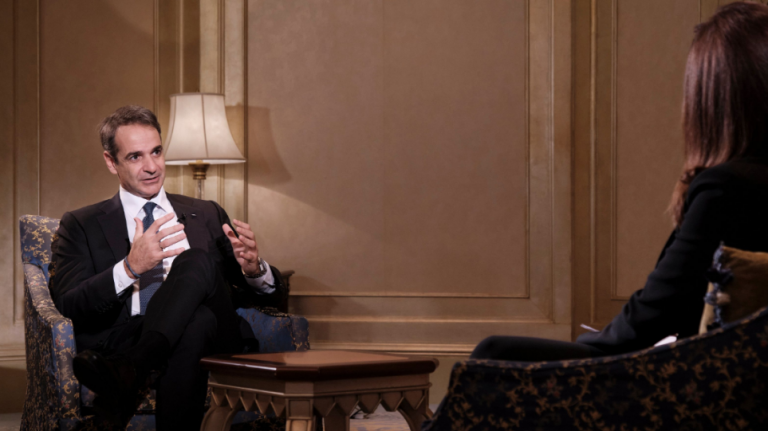PM Kyriakos Mitsotakis said Greece would sit at the table with Turkey to dialogue only when the latter would stop its provocative activities in the region during an interview with Sky News Arabia.
“At the moment, Turkey is acting as a troublemaker in the region and this observation is not only about Greek-Turkish relations,” said the PM, adding that Turkey had adopted a very provocative behavior in recent years and noted that he, since taking office, has extended a hand of friendship many times “asking President Erdogan to work together in a spirit of cooperation for to resolve issues that arise between our countries.
“Look at what is happening with Cyprus, in Libya, in the Caucasus. There does not seem to be a common understanding with Turkey on important, strategic priorities. And this is not just an observation on the part of Greece. Many other countries in the region seem to share the same view on Turkey’s role as a troublemaker in the region.”
also read
Archbishop Ieronymos of Athens has Covid-19
Tesla Set to Join the S&P 500 an Instant Heavyweight (infographic)
Regarding the EU’s stance on the Turkish provocation in the Eastern Mediterranean, the Prime Minister stressed that European leaders made it clear to the neighbouring country that there are two options; cooperation, and the other option that will lead to strained relations between Turkey and the European Union, and inevitably consequences for Turkey.
“We have made it clear that if it chooses the first path – which is the choice I prefer, as well as all European countries – Turkey will have to show clearly that it will stop its aggressive behaviour in the Eastern Mediterranean towards Greece, but also Cyprus. A deadline has already been set, which is the next European Council to be held in December, where developments in recent months will be assessed and a decision will be taken on a common European stance towards Turkey. Unfortunately, in recent weeks we have not seen Turkey stop this provocative behaviour. There are ongoing provocations on its part to the detriment of our sovereign rights in the Eastern Mediterranean and a worryingly provocative attitude towards Cyprus, due to which I cannot be particularly optimistic that we can talk about the possibility of a de-escalation of the situation,” he added.
Ask me anything
Explore related questions





